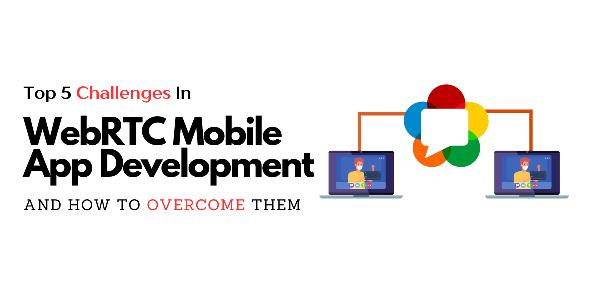 Website Copy Makeover – Turn Visitors into Buyers Instantly!
Website Copy Makeover – Turn Visitors into Buyers Instantly!
How to Hire WebRTC Developers to Build Custom Communication Platforms
Written by Master Software Solutions » Updated on: June 17th, 2025

In today’s digital landscape, real-time communication is a cornerstone of modern business. Whether it's video conferencing, live chat, or voice calls, having a robust communication platform is essential for effective collaboration and customer engagement. Web Real-Time Communication (WebRTC) technology has emerged as a key player in this space, enabling real-time, peer-to-peer connections directly through web browsers and mobile applications. But to leverage the full potential of WebRTC, you need a team of skilled developers who can build custom communication platforms tailored to your specific needs.
This blog will guide you through the process of hiring WebRTC developers to ensure your project’s success.
Why WebRTC?
Before diving into the hiring process, it’s important to understand why WebRTC is a powerful choice for building communication platforms. Developed by Google, WebRTC is an open-source project that facilitates real-time voice, video, and data sharing. The technology is widely supported across major browsers and mobile devices, making it a versatile solution for building custom communication platforms.
Key benefits of WebRTC include:
- No Plugins Required: WebRTC works directly within browsers, eliminating the need for external plugins.
- High-Quality Audio and Video: WebRTC provides high-definition audio and video capabilities, ensuring clear communication.
- Secure Communication: WebRTC uses encryption standards to ensure secure data transmission.
- Cost-Effective: Being open-source, WebRTC reduces the costs associated with licensing fees and proprietary technologies.
Given these advantages, it's no wonder businesses are increasingly turning to WebRTC for their communication needs. However, the success of your WebRTC project hinges on the expertise of the developers you hire.
Steps to Hire the Right WebRTC Developers
1. Define Your Project Requirements
The first step in hiring WebRTC developers is to clearly define your project requirements. This includes:
Project Scope: Determine the features you want in your communication platform, such as video conferencing, screen sharing, file transfer, and real-time messaging.
- Technical Stack: Identify the technologies you want to use alongside WebRTC, such as front-end frameworks (React, Angular), back-end technologies (Node.js, Python), and databases (MySQL, MongoDB).
- Target Platforms: Decide if your platform will be web-based, mobile, or both.
- Security Requirements: Specify any industry-specific security protocols you need to follow, such as HIPAA for healthcare or GDPR for European users.
Having a well-defined project scope will help you find developers with the right skills and experience.
2. Look for WebRTC-Specific Experience
WebRTC is a specialized technology, and not all developers are proficient in it. When reviewing candidates, prioritize those with proven experience in WebRTC development. Key areas to focus on include:
Peer-to-Peer Communication: Understanding of peer-to-peer (P2P) connections, which is fundamental to WebRTC.
- Media Handling: Experience with handling audio and video streams, including encoding, decoding, and optimizing media quality.
- Network Protocols: Knowledge of network protocols like ICE, STUN, and TURN, which are essential for establishing WebRTC connections.
- Security Implementation: Experience with implementing security features such as end-to-end encryption and secure RTP (SRTP).
- Interoperability: Ability to integrate WebRTC with other technologies and platforms, such as SIP for VoIP services.
Review the candidate's portfolio or previous projects to assess their WebRTC expertise.
3. Evaluate Soft Skills and Cultural Fit
In addition to technical skills, soft skills and cultural fit are equally important. Look for developers who can:
- Communicate Effectively: Given the collaborative nature of WebRTC projects, clear communication is key.
- Problem-Solve: WebRTC projects often involve troubleshooting complex issues, so strong problem-solving skills are essential.
- Adapt to Changes: WebRTC technology is continuously evolving, so the ability to learn and adapt quickly is important.
- Work in a Team: Building a communication platform typically involves collaboration with designers, QA engineers, and other developers.
Cultural fit is also important, especially if you’re hiring remote developers. Make sure the candidate aligns with your company's values and culture.
Also Read: Why Should You Hire WebRTC Developers?
4. Conduct Technical Interviews
Once you’ve shortlisted candidates, the next step is to conduct technical interviews. During these interviews, focus on assessing the candidate’s practical knowledge of WebRTC. Some useful interview techniques include:
- Coding Tests: Give the candidate a coding challenge related to WebRTC, such as building a simple video chat application.
- Scenario-Based Questions: Present real-world scenarios and ask the candidate how they would address specific challenges, such as optimizing video quality in low-bandwidth environments.
- Portfolio Review: Go through the candidate’s previous work in detail, asking them to explain their role in each project and the technologies they used.
If possible, involve a senior WebRTC developer or architect in the interview process to ensure a thorough assessment.
5. Consider Outsourcing or Hiring Freelancers
If you’re unable to find suitable candidates locally, consider outsourcing or hiring freelancers. Many skilled WebRTC developers work remotely and are available for short-term contracts. Outsourcing can be a cost-effective option, especially if you have a tight deadline or budget.
When outsourcing, make sure to:
- Vet the Agency or Freelancer: Check their credentials, client reviews, and previous work to ensure they have the required expertise.
- Establish Clear Communication Channels: Set up regular meetings and progress reports to stay updated on the project’s status.
- Define Milestones and Deadlines: Clearly outline project milestones and deadlines in the contract to avoid any misunderstandings.
6. Ensure Proper Onboarding and Training
Once you’ve hired your WebRTC developers, invest time in onboarding and training. This includes:
- Providing Documentation: Give the developers access to all necessary project documentation, including design specs, API references, and user stories.
- Setting Up Development Environment: Ensure that the developers have access to the required tools and environments, such as version control systems (e.g., Git), project management tools (e.g., Jira), and testing platforms.
- Facilitating Team Integration: Introduce the developers to the rest of the team and establish communication protocols to facilitate collaboration.
Proper onboarding ensures that your WebRTC developers can hit the ground running and contribute effectively to the project.
Conclusion
Hire WebRTC developers is crucial for the success of your custom communication platform. By following the steps outlined in this guide—defining your project requirements, prioritizing WebRTC-specific experience, evaluating soft skills, conducting technical interviews, considering outsourcing, and ensuring proper onboarding you can build a strong development team that delivers a high-quality, secure, and scalable communication platform.
Investing in skilled WebRTC developers not only ensures the technical success of your project but also positions your business to meet the growing demand for real-time communication solutions. Whether you’re building a video conferencing app, a live chat platform, or a customer support solution, the right team will make all the difference.
Note: IndiBlogHub features both user-submitted and editorial content. We do not verify third-party contributions. Read our Disclaimer and Privacy Policyfor details.
Copyright © 2019-2025 IndiBlogHub.com. All rights reserved. Hosted on DigitalOcean for fast, reliable performance.

















